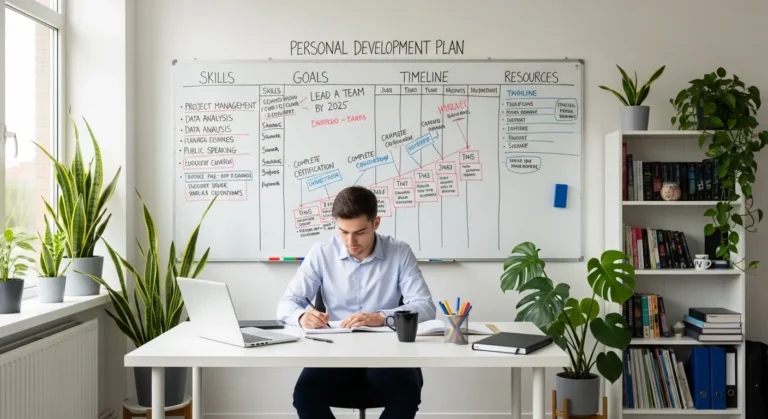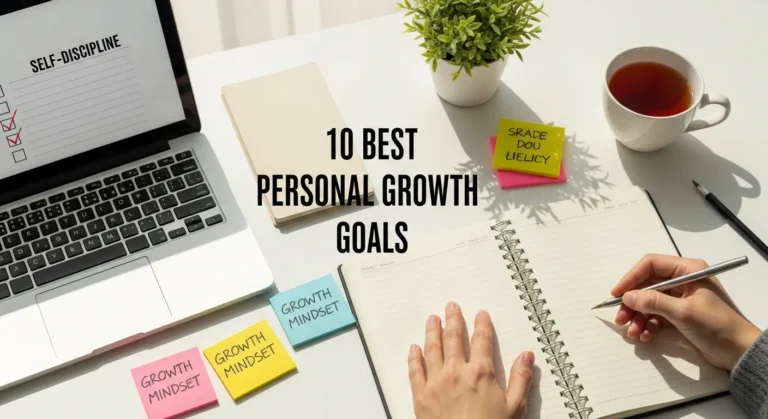10 Powerful Personal Development Goals for Work
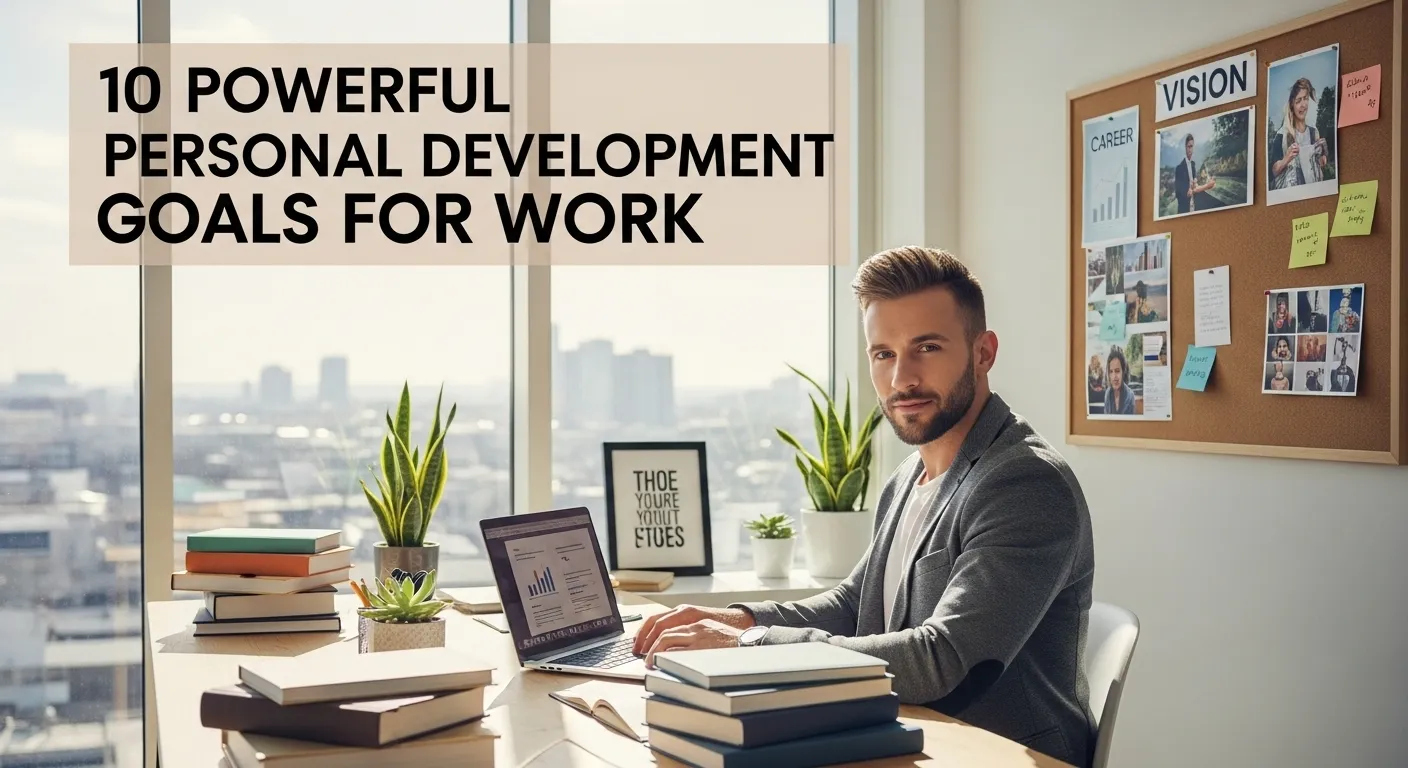
|
Getting your Trinity Audio player ready...
|
Setting personal development goals for work isn’t just about climbing the corporate ladder – it’s about transforming yourself into the professional you’ve always wanted to become. When you invest in your growth, you create opportunities that didn’t exist before and unlock potential you never knew you had. The most successful professionals understand that their career trajectory depends on continuous learning and self-improvement. Without clear development objectives, you’re essentially driving without a destination, hoping you’ll somehow end up where you want to be.
The workplace has evolved dramatically, demanding more from professionals than ever before. Employers now seek individuals who can adapt quickly, lead effectively, and contribute meaningfully to organizational success. Your personal development goals for work serve as your roadmap to meeting these expectations while advancing your own aspirations. By establishing specific, measurable objectives, you position yourself not just as an employee, but as a valuable asset who drives results and inspires others.
Why Personal Development Goals Matter in Your Career

Professional growth doesn’t happen by accident. It requires intentional effort, strategic planning, and consistent execution. When you establish clear personal development goals for work, you create accountability for your own success and give yourself permission to invest time and energy in what matters most.
The benefits extend far beyond immediate job performance. Professionals who actively pursue development opportunities report higher job satisfaction, increased confidence, and better work-life balance. They become the go-to people in their organizations, earning respect from colleagues and recognition from leadership.
10 Essential Personal Development Goals for Work
Focusing on personal development goals at work can help you grow both professionally and personally. These goals push you to improve your skills, boost productivity, and build stronger relationships in the workplace. By setting clear and consistent goals, you can stay motivated, adapt to challenges, and keep moving forward in your career. Whether it’s learning new skills, managing time better, or improving communication, these development goals can make a big difference in long-term success.
1. Master Effective Communication Skills

Communication forms the foundation of every successful professional relationship. Whether you’re presenting to executives, collaborating with teammates, or providing feedback to direct reports, your ability to convey ideas clearly determines your impact. Focus on improving both verbal and written communication, paying attention to tone, clarity, and audience needs.
Practice active listening to understand before seeking to be understood. This skill alone can transform your professional relationships and make you a more effective leader and collaborator.
2. Develop Strong Leadership Abilities

Leadership isn’t reserved for those with management titles. Every professional has opportunities to influence outcomes, guide decisions, and inspire others. Start by leading by example, taking initiative on projects, and helping colleagues succeed.
Study different leadership styles and identify which approaches work best in various situations. The most effective leaders adapt their style to meet the needs of their team and the demands of each situation.
3. Enhance Technical Skills Relevant to Your Industry
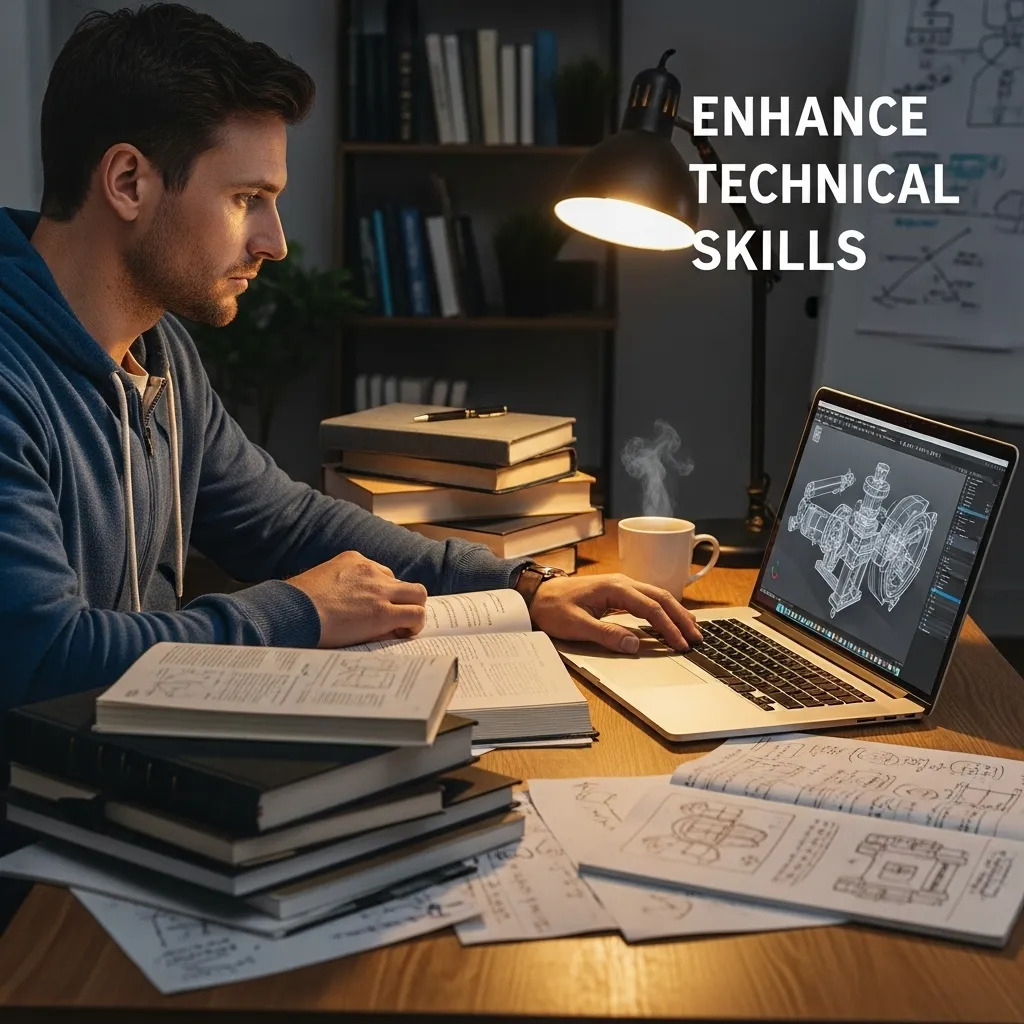
Technology continues reshaping every industry, making technical proficiency essential for career advancement. Identify the tools, software, and platforms that are becoming standard in your field and commit to mastering them. This might include data analysis tools, project management software, or industry-specific applications.
Stay ahead of emerging technologies that could impact your role. By becoming an early adopter, you position yourself as a valuable resource and future-focused professional.
4. Build a Professional Network

Your network is your net worth in the professional world. Building meaningful relationships with colleagues, industry peers, and mentors creates opportunities that aren’t advertised publicly. Focus on giving value to others before expecting anything in return.
Attend industry events, join professional associations, and engage authentically on professional social media platforms. The connections you build today often become the opportunities you access tomorrow.
5. Improve Time Management and Productivity
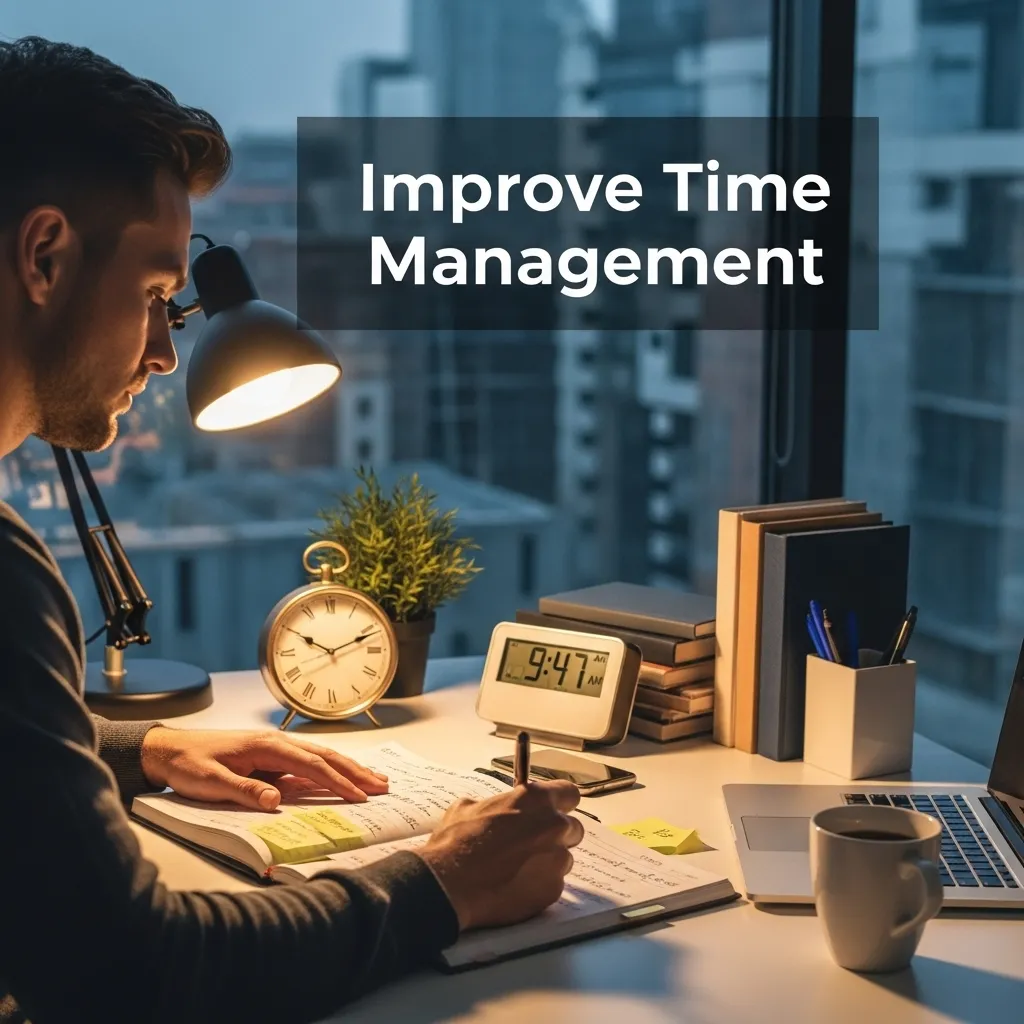
Exceptional time management separates high performers from the rest. Learn to prioritize tasks based on impact and urgency, eliminate time-wasters, and create systems that support consistent productivity. This includes saying no to commitments that don’t align with your goals.
Experiment with different productivity methods to find what works best for your work style and responsibilities. Whether it’s the Pomodoro Technique, time-blocking, or Getting Things Done, the right system can dramatically improve your effectiveness.
6. Cultivate Emotional Intelligence

Emotional intelligence often matters more than technical skills in determining professional success. This includes self-awareness, self-regulation, empathy, and social skills. Professionals with high emotional intelligence navigate workplace challenges more effectively and build stronger relationships.
Practice recognizing your emotional responses and their impact on others. Learn to manage stress, handle conflict constructively, and create positive interactions even in challenging situations.
7. Pursue Continuous Learning and Skill Development

The half-life of skills continues shrinking across industries. What made you valuable five years ago might be obsolete today. Commit to lifelong learning through formal education, online courses, workshops, and self-directed study.
Create a learning plan that includes both immediate needs and future aspirations. Set aside time regularly for skill development, treating it as an investment in your career rather than an optional activity.
8. Strengthen Problem-Solving Capabilities
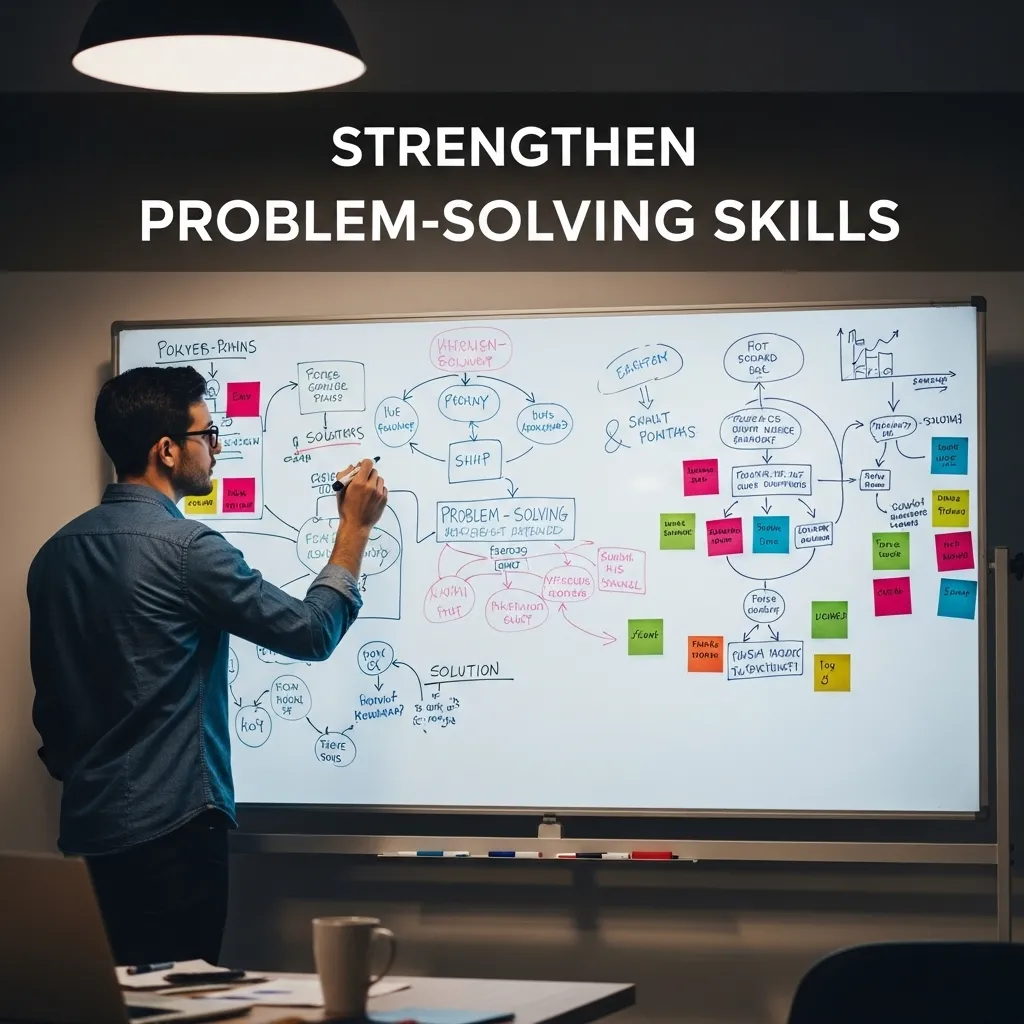
Organizations value employees who can identify problems and create solutions. Develop your analytical thinking, creativity, and decision-making skills. Learn to approach challenges systematically while remaining open to innovative approaches.
Practice breaking down complex problems into manageable components. The ability to see both the big picture and the details makes you invaluable in any organization.
9. Enhance Public Speaking and Presentation Skills
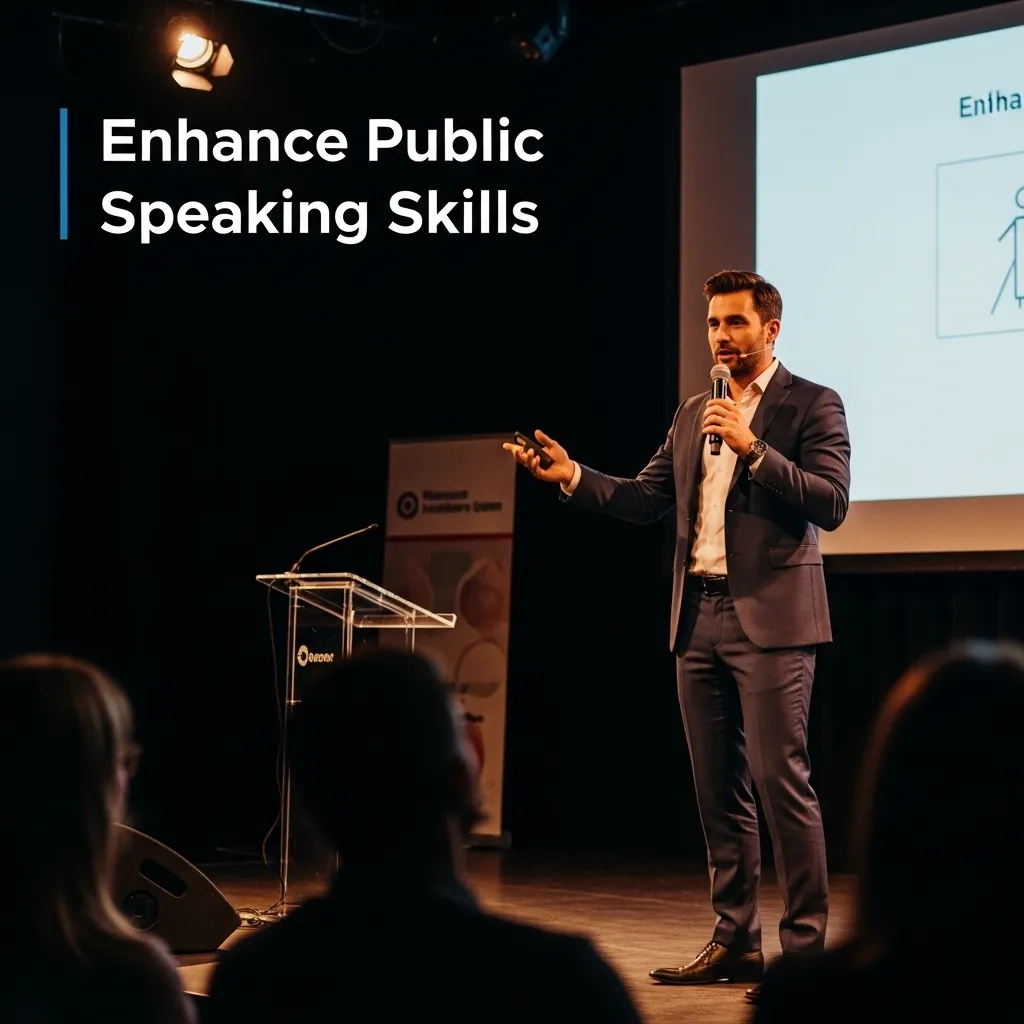
Whether you’re presenting to clients, leading team meetings, or speaking at industry events, strong presentation skills accelerate your career. Many professionals avoid opportunities because they fear public speaking, creating an advantage for those who embrace it.
Join organizations like Toastmasters or take presentation skills training. The confidence you gain from effective public speaking extends into all areas of your professional life.
10. Develop Strategic Thinking Abilities

Strategic thinking involves seeing beyond immediate tasks to understand how your work contributes to broader organizational goals. It means anticipating future challenges and opportunities while making decisions that create long-term value.
Study your industry trends, understand your organization’s strategic objectives, and look for ways to align your contributions with these bigger picture goals. Strategic thinkers are often fast-tracked for leadership positions, and personality development training can help sharpen these skills.
Creating Your Personal Development Action Plan
Success with personal development goals for work requires more than good intentions. Create specific, measurable objectives with deadlines and action steps. For example, instead of “improve communication skills,” set a goal to “complete a public speaking course and deliver three presentations to different audiences within six months.”
Track your progress regularly and adjust your approach as needed. Some goals may prove more challenging than expected, while others might be achieved more quickly. Flexibility in your methods while maintaining commitment to your outcomes ensures continuous progress.
FAQs About Personal Development Goals for Work
How many personal development goals should I focus on?
Work on 2–3 at a time for best results.
How do I measure progress on soft skills?
Use feedback, project results, or mentoring impact.
Should I share my goals with my manager?
Yes, it helps them support your growth.
How much time should I spend weekly?
At least 2–3 hours on learning and practice.
What if my company doesn’t support development?
Use free resources, online courses, and networking.
Conclusion
Your commitment to personal development goals for work determines whether you’ll merely survive in your career or truly thrive. The professionals who achieve lasting success are those who never stop growing, learning, and adapting to new challenges. By implementing these ten powerful development goals, you’re investing in a future where you have more options, greater influence, and deeper satisfaction in your work. The time you spend developing yourself today creates the opportunities you’ll enjoy tomorrow.
Remember that personal development is not a destination but a continuous journey of growth and improvement. The goals you set and achieve this year become the foundation for even greater accomplishments next year. Your career success depends not on luck or timing, but on your deliberate efforts to become the professional you’re capable of being. Start today, stay consistent, and watch as your investment in personal development transforms not just your career, but your entire professional life.





